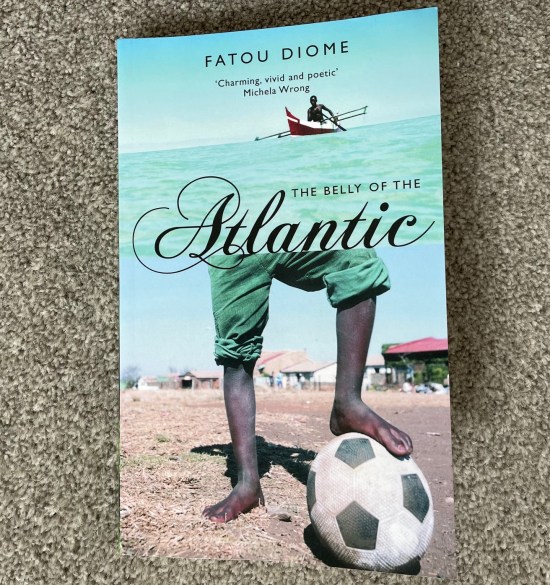
This month, the seventh in my year of reading nothing new, I delved back further than usual. My edition of July’s featured title was published in 2020, but the original came out some considerable time before that, in 1881.
The English translation of The Posthumous Memoirs of Brás Cubas is a collaboration between two translators to whom I owe a debt of gratitude. Back in 2012, Margaret Jull Costa and Robin Patterson were among the nine volunteers who translated A casa do pastor by Olinda Beja so that I would have a book to read from São Tomé and Príncipe.
As its title suggests, the novel by the legendary Brazilian author Joaquim Maria Machado de Assis presents an account written from beyond the grave by its title character, an aristocrat with a string of failed love affairs and thwarted political ambitions to his name. It wastes no time in declaring its singularity. Right from its dedication (to the first worm to gnaw its author’s flesh), it demonstrates a determination to explode conventions and taboos.
The narrative also rides roughshod over literary customs. Digressions abound, chronology scatters and we are repeatedly informed that the author is minded to cut a section we have just read, as well as told about notes for chapters that will not be written, and, once, presented with a passage in which all dialogue is blank. ‘This is, after all, the work of a dead man’, Brás Cubas or whatever remains of him declares, as if with a shrug.
Indeed, being dead seems to absolve the protagonist-narrator of all obligations to please, giving him carte blanche to lay into whomever he chooses. The reader is no exception, and neither is Brás Cubas himself:
The main problem with this book is you, the reader. You’re in a hurry to get old, and the book progresses slowly; you love direct, sustained narrative, a regular, fluid style, whereas this book and my style are like a pair of drunkards: they stagger left and right, start and stop, mumble, yell, roar with laughter, shake their fists at the heavens, then stumble and fall…
Of course, regardless of its narrator’s declarations about having no need to please, such devil-may-care posturing is extremely entertaining and pleasing. A great deal of humour comes from a choice of register that deflates the pretensions of the characters. There is also a wonderful inventiveness to the writing. Although he often abandons analogies in mid-flow, the imagery Brás Cubas does use is often startlingly fresh and witty. ‘One morning, while I was strolling in the garden, an idea appeared on the trapeze I have inside my head,’ he declares at the start of chapter two. Among the many things to admire about the translation is surely the fact that Jull Costa and Patterson have managed to achieve a voice that is simultaneously erratic and distinctive, that, while roving among the registers, feels true to its singular speaker. (Although the inclusion of footnotes creates a strange tension in this anarchic, irreverent text: I found myself constantly questioning whether what seemed to be straight, factual glosses were in fact up to something I hadn’t fathomed – maybe they were.)
Another of the book’s startling qualities is the way it seems to reach both forward and backwards in literary history. Its irreverence and textual high-jinks recall the works of eighteenth century writers such as Sterne; there is more than a touch of the picaresque about it; yet its inventiveness also hints at psychedelia and the experimentation of the greats of modernism. In this sense, Machado has achieved a powerful impression of, if not the eternity that entraps its narrator, then timelessness.
The same goes for its satire. At once of its moment and resonant beyond its setting, Machado’s exposure of the hypocrisy of this society built on the backs of slaves, in which the desire for fame eclipses genuine advancement and learning, speaks to worlds he can never have known.
At one point Brás Cubas even seems to reach from the pages to grip our hands. He imagines a ‘bibliomaniac’ seventy years or so on from the time of writing considering the novel. The description is not flattering – he conjures a sallow, white-haired creature whose main interest in the volume is because it is rare rather than of any literary value.
I like to think I’m some distance from the figure Machado imagined. Yet, knowing the author to have been something of a ‘bibliomaniac’ himself – he reportedly set himself the goal of reading all the world’s classics in their original languages – I suspect he may have more sympathy for such creatures then this depiction implies. At any rate, another seventy years on from the time of the bibliomaniac Brás Cubas pictures, this bibliomaniac salutes his author, even as she corrects him: the value of his novel has nothing to do with its scarcity. It is thankfully widely available. And a jolly good thing too.
The Posthumous Memoirs of Brás Cubas by Joaquim Maria Machado de Assis, translated from the Portuguese by Margaret Jull Costa and Robin Patterson (Liveright, 2020)
Source: A year of reading the world


